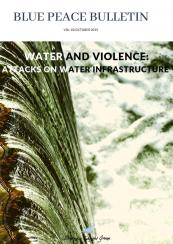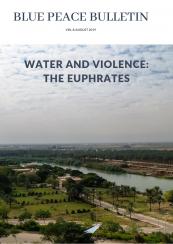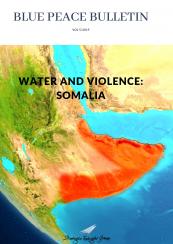publications
-
Water and Violence: Cyber Attacks and Cyber Warfare

The Global High Level Panel on Water and Peace called for protection of water resources and infrastructure from violent conflicts and terrorist acts. In this volume, we examine the emerging threat of cyber attacks on critical infrastructure.
-
Water and Violence: Attacks on Water Infrastructure

The Global High Level Panel on Water and Peace called for protection of water resources and infrastructure from violent conflicts and terrorist acts. In this volume, we look at how attacks on water infrastructure have been carried out since ancient times by state as well as non-state actors.
-
Interview with Danilo Turk

The Global High Level Panel on Water and Peace called for protection of water resources and infrastructure from violent conflicts and terrorist acts. The Panel submitted its report to the United Nations and the international community in September 2017. On the second anniversary of the release of its report, we interview Danilo Turk, Chairman of the Panel and former President of Slovenia, on various aspects of the Panel’s recommendation on protecting water resources from violent conflicts.
-
Water and Violence: The Euphrates

The Global High Level Panel on Water and Peace called for protection of water resources and infrastructure from violent conflicts and terrorist acts. In this volume, we examine the region around the Euphrates River and the possible role that it could play in finding a future solution in Syria.
-
Protection of Water: Local Solutions

The bulletin explores traditional means of conflict resolution that have been successful in resolving localised conflicts over water. Furthermore, it describes certain unresolved water related conflicts that could potentially be resolved using more local-level forms of conflict resolution.
-
Regional Water Protection Framework

There are a plethora of legal instruments including the Geneva Conventions that address the issue of protection of water resources especially during armed conflicts. However, its implementation is relegated to the realm of domestic polices of state parties. The protection of water resources and related infrastructure more often than not require collective, regional or basin level measures by states. This is therefore an attempt to lay down guidelines that states can adopt towards cooperative and collective security measures to protect water resources and infrastructure against acts of violence by terror groups or during international and non-international armed conflicts.
-
Water and Violence: Somalia

In the drought and conflict stricken Somalia, water is often indiscriminately targeted or used as a weapon of war primarily by Al-Shabaab. Destruction of water infrastructure, blocking of access to rivers and other water sources, poisoning of wells of both civilians and peacekeepers are but some tactics deployed by the terror group. A holistic and coordinated response by the Somalian government, key countries such as Ethiopia, regional actors like the AU and the AMISOM peacekeeping forces could go a long way in helping the nation grapple with their water woes and protecting their dwindling resources.
-
Blue Peace in International Finance

Trans-boundary cooperation in the water sector is much desired by various stakeholders. But the big question is how to mobilise resources for collaborative infrastructure. So far, most riparian countries depend on the World Bank and other multi-lateral banks, but data shows that Development Finance Institutions have made a very weak commitment to collaborative water projects between countries. There is a recent discourse about harnessing private capital. But it has proved difficult to respond to the hard commercial objectives of the private sector. In this challenging background, the new SFG report “Blue Peace in International Finance” provides many answers to difficult questions.
Conferences Reports
-

P5 Experts Roundtable on Nuclear Risk Reduction
Download:Geneva Roundtable Report
-

Roundtable on Global Security and Catastrophic Risks
Download:Report on RT revise
latest articles
-
Saving Humanity from the Scourge of War
22 April 2022 By Sundeep Waslekar
-
Looking Forward, Looking Back
October 13, 2020 By Ilmas Futehally
-
Progress or Precipice???
May 21, 2018 By Sundeep Waslekar



